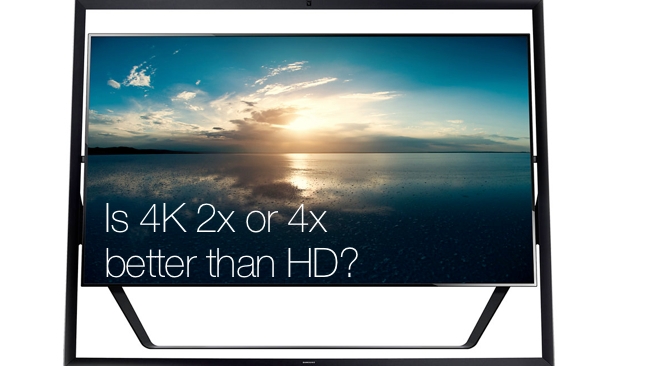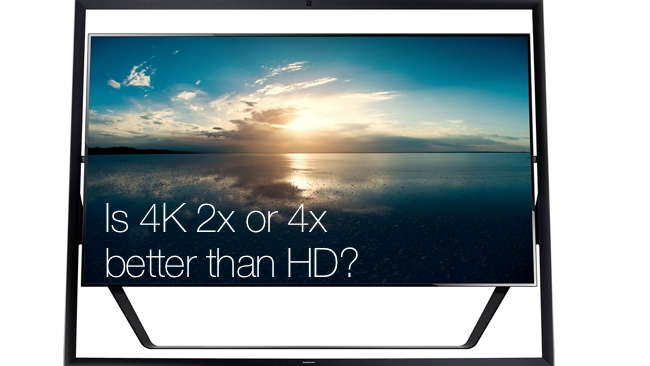
 Is 4K 2 or 4x better than HD?
Is 4K 2 or 4x better than HD?
Another chance to read: Don't confuse pixel numbers with resolution!
There's a very easy mistake to make with 4K, and that's confusing resolution with the number of pixels. I've even made this mistake myself. It's one of those things that you have to be careful about or you can get it wrong, even though you understand perfectly well how it all works.
Here's the problem: 4K, or, strictly, UHD, screens have four times the number of pixels compared to HD screens.
So does this mean that the picture is four times better? It depends what you mean.
If you mean that you can have a screen that's four times the size of an HD screen (ie as if you had four HD screens arranged in a grid) and still show a picture as good as one on a screen a quarter of the size, then, yes, it is quite literally four times better.
That's because there are four times the number of pixels.
But how much better is the resolution?
It's only two times.
Counter intuitive
Sounds counter-intuitive, until you look at it like this.
HD is almost 2K. In practice, they're almost the same with just a very slight difference in width. UHD is almost 4K , which is, well, 4K.
The number before the "K" (which means Thousands) is the number of horizontal pixels along the screen.
Notice that we're talking about horizontal pixels here. We could just as well be talking about vertical ones. 4K has twice 2K's vertical pixels as well.
But we're talking about Horizontal and Vertical here. They're linear measurements; they don't refer to area. And that's where the difference - and the potential for mistakes - lies. If you're talking about (say) the number of pixels per inch as a measure of screen resolution, then 4K is only twice that of 2K.
And of course, 8K is only twice the resolution of 4K.
Which - to me - makes 4K sound like it's not as big a jump in resolution as you might originally have thought.
But don't forget: to achieve that doubling of linear resolution, you have to have four times the number of pixels, and four times the amount of data to collect, move and store.
So 4K is a pretty big deal after all.
There are some other consequences of this as well. For example, if you let your focus slip to that you blur one pixel with the adjacent one, you're back to 2K, or even less. You really do need some pretty tight focusing skills to deal with that, and this is going to be an important factor for anyone moving to 4K acquisition. If you don't have your own full-time focus-puller, and you absolutely have to get that shot, you might want to consider a camera with a smaller sensor!
Tags: Technology


Comments